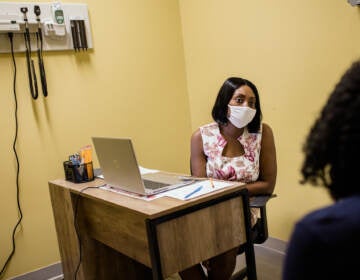Delaware horse infected with West Nile

(AP Photo/USDA, File)
A horse in Delaware was euthanized after it was infected with West Nile Virus.
This is the first time this year a horse has been infected with the virus, and the first case since 2015, according to the Delaware Department of Agriculture.
The 11-year-old quarter horse mare from Kent County, who was not vaccinated against the virus, began showing symptoms of weakness on August 6th, and eventually lost the ability to stand.
In July and August, there were two detections of West Nile and one detection of Eastern Equine Encephalitis in state-owned sentinel chickens, and a detection of West Nile in a wild crow. There have been no cases of either virus among humans so far this year.
Horses and humans can be infected by West Nile Virus and Eastern Equine Encephalitis through a mosquito bite. However, the virus cannot be transmitted horse to human.
West Nile infections in horses are fatal 30 percent of the time, and Eastern Equine Encephalitis in horses are fatal 70 to 90 percent of the time.
Symptoms of West Nile in horses include fever, anorexia, head pressing, depression or personality change, wobbling or staggering, weakness, blindness, convulsions, muscle spasms in the head and neck or hind-limb weakness, according to the Department of Agriculture. The department urges owners to contact their veterinarian immediately if their horse shows any of these symptoms.
The state veterinarian urges horse owners to have their horses and equines vaccinated against West Nile and Eastern Equine Encephalitis, as it is currently peak mosquito season.
In order to prevent the virus, the department recommends keeping horses inside during dawn and dusk, which are peak hours for mosquitos, using topical insect repellents for horses and installing fans in horse stalls to deter mosquitoes. Old tires and containers should be disposed of and standing water eliminated, and water troughs or buckets should be emptied, cleaned and refilled every two to three days to remove any mosquito eggs or larvae, the department said.
For more information about WNV or EEE:
- Human health questions should be directed to the Delaware Division of Public Health, (888) 295-5156, or (302) 744-4990.
- Animal health questions should be directed to the Delaware Department of Agriculture at (800) 282-8685 (Delaware only) or (302) 698-4500. Ask for the Poultry and Animal Health Section.
- Questions about the state’s mosquito control program or mosquito biology should be directed to the Delaware Department of
- Natural Resources and Environmental Control’s Mosquito Control Section at (302) 739-9917.
WHYY is your source for fact-based, in-depth journalism and information. As a nonprofit organization, we rely on financial support from readers like you. Please give today.





